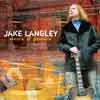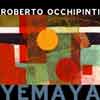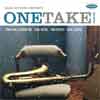LMR You started your own label, you produce the albums, and sometimes you even do the arrangements. How does the arranging fit in with what you’re going after in making a record?
PC My background is arranging. I spent a number of years working with Motown and Anne Murray and Ray Charles, and that is one of my first loves. I’m very interested in how sounds are made, and that’s part of arranging. I never hire an arranger. I do that myself.
LMR In the website bio you describe Alma as ”a record label that looks for the feel in the song, not just the formula.” You contrast that approach with ”the obsessive demands of the music industry”. Could you expand that phrase ‘the feel not the formula’?
PC I treat every situation differently. I look for the strength in the artist and in the material. I produce around that. The worst thing you can do is to produce a Peter Cardinali record for Michael Kaeshammer. That’s done quite often, it’s a drag, because it is the artist that you’re recording, and you want to bring out their strong points, bring out their talent.
That’s what it means to go for ‘the feel, not the formula’. I’m glad that Alma is called a ‘music first’ label, because that is what we are all about. We don’t make decisions based on the dollar. I know what good music is because this is what I’ve dedicated my life to. It takes a lot of years to be able to say, “You’re wrong. This is fantastic. I know what I’m going to do with this”
That said, we’re also savvy in the business world. We’re not just throwing everything into the artistic bag. It is a business, and to stay in business you have to have that knowledge too.
So when we decide to take on a project, we put our heads down and do what we think is best rather than following the trends. We have enough brains and foresight and talent that we’ll be setting trends rather than following them.
LMR There is a strong family factor in your business. How does that affect the ‘soul’ quality in Alma?
PC We are family based here. Both my elder daughters work with me actively. They are totally into what I’m doing. This creates a feeling of security at Alma. That family feeling gets extended. Once we sign an artist, they become part of it.
LMR Talk to me about what’s going on with Kristy [Cardinali], and what you are about to produce around her talent.
PC It’s about making the record around the artist’s strong points. Kristy’s strength is the sound of her voice. She has such a pure voice. We’re making an intimate record, sparsely instrumented, around her and Robi Botos [on keyboard]. Piano-vocal a couple of tracks, a couple of tracks with piano, vocal and Guido Basso [trumpet and flugelhorn], and with Don Thompson a couple of bass-piano-vocal tracks, and Cadence is coming in to do a track — Mel Tormé’s “A Sleeping Bee” [Harold Arlen, 1954]. It is going to be an audiophile record. She’s got such a pure voice; all you have to do is hear her sing the melody.
LMR What would you like to say about Jake’s [Langley] latest?
PC Movin’ and Groovin‘ is expanding on his first record for us, Diggin’ In. That was his first record with Joey DeFrancesco. Joey was coming into town to do a One Take at the Orbit Room and he called and asked me “Who is this guy, Jake Langley, what do you think?” I said, “Jake is great.” And Joey knew Terry Clarke. So they did the record in a day.
Now that Jake’s been in Joey’s band for a couple of years, they’re developing the esp. Movin’ and Groovin’ is what the first album tried to be. Since then, Jake has come into his own in this trio setting, with drummer Byron Landham who they play with all the time, so Jake’s second record feels really natural and great.
For the third, we’ll see more original material. We’ve done two records where it’s been “Ok, just play.” They are such strong players that if you let them ‘just play’, you’ll come up with a great record. Now I want to form and shape it into something unique and different without taking away the spontaneity.
LMR Let’s close this down with your thoughts about the Junos this weekend.
PC The awards thing is great. It’s great to win an award and get recognition from your peers. The Junos are not an audience situation but a panel of music experts. We have three of the five nominees for the Contemporary Jazz Album, and one in Traditional Jazz Album, which is fantastic. We have more nominations than any other independent, and we have a nomination for Jazz Label of the Year. The way we operate is to put our head down and do what we feel is best, and don’t let anybody sway that — we just go with our own gut feelings. These nominations are proof that our own gut feelings are pretty good.
As far as whether we win one or not really doesn’t matter, though there’s a little pressure in having three of the five nominations and not win one. All it means to us is they’re putting us in the category of label to be listened to. That’s most important.






